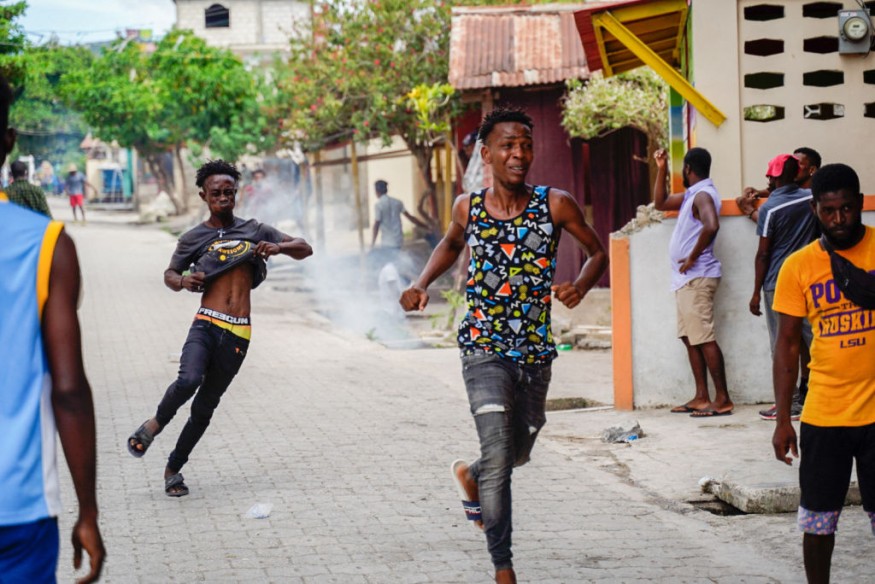Haiti Gang Violence, Protests Engulf Nation; Joe Biden Aide Saying Strikes Financed by Economic Actors

Haiti gang violence has spread from the poorest slums of the nation to the country's capital, with up to 200 gangs taking territory in Port-au-Prince.
The Guardian reported that the violence that has reached the capital of Haiti has displaced thousands of families.
In May, young men were roaming into town on motorcycles and armed with assault rifles. They then seized control of the area by June, and the following month, the gangs had become the de facto authority.
Gang members even took children to join their ranks and raped any women that caught their eye.
One construction worker, who fled his home with his wife and sons, said the gang members take what they want and "have no fear and they have no mercy."
The United Nations noted that 10 days between July 8 and 17 in Cite Soleil have killed 209 people, with rival G9 and G-Pep factions fighting for control of the area with machine guns and machetes.
One man who was asked to be called Michael said that Cite Soleil had always had security issues, but his neighborhood was peaceful, and never thought that he would be forced out of his home by the gangs.
Meanwhile, the 5 Seconds gang seized control of the country's Supreme Court in June and has been training minors for the use of military-grade weapons, according to observers' report.
Aside from gang violence, protests have also broken out in recent weeks with gas shortages and soaring food prices experienced by the population.
Haiti Protests
Protesters are demanding the resignation of Haiti's Prime Minister Ariel Henry amid the end of government fuel subsidies, which caused petrol and diesel prices to rise.
BBC News noted that Justice Minister Berto Dorce vowed to identify and punish those behind the attacks on property.
U.N. Secretary-General Antonio Guterres has expressed deep concern about the unrest in Haiti.
Protesters were reported to be throwing stones, and there were shots heard being fired.
Two Haitian journalists were also shot dead, their bodies set on fire in Cite Soleil while they were reporting on violence.
On Thursday, the local offices of the U.N. Food Program were also attacked.
A Guterres spokesperson said the unrest had brought the country to a standstill, warning that Haiti's most vulnerable people will "deteriorate even further."
Haiti's Civil Unrest
Juan Gonzales, a special assistant to U.S. President Joe Biden and National Security Council's senior director for the Western Hemisphere, said people are opposed to the $400 million in fuel subsidies.
Gonzales said in a Miami Herald report that people who often do not even live in Haiti, who have properties in a different part of the world, are paying for people to protest in the streets.
Gonzales's statement came during an appearance at the Washington, D.C.-based U.S. Institute of Peace.
He was asked by Keith Mines about Haiti. Mines was the institute's director for the Latin America program.
The Biden aide said there is an "easy fix in Haiti," adding that the U.S. assistance is not getting through due to gangs controlling roads and communities.
This article is owned by Latin Post.
Written by: Mary Webber
WATCH: Haiti riots: Calls for calm after anti-government violence - from BBC News
Subscribe to Latin Post!
Sign up for our free newsletter for the Latest coverage!
© 2026 Latin Post. All rights reserved. Do not reproduce without permission.













